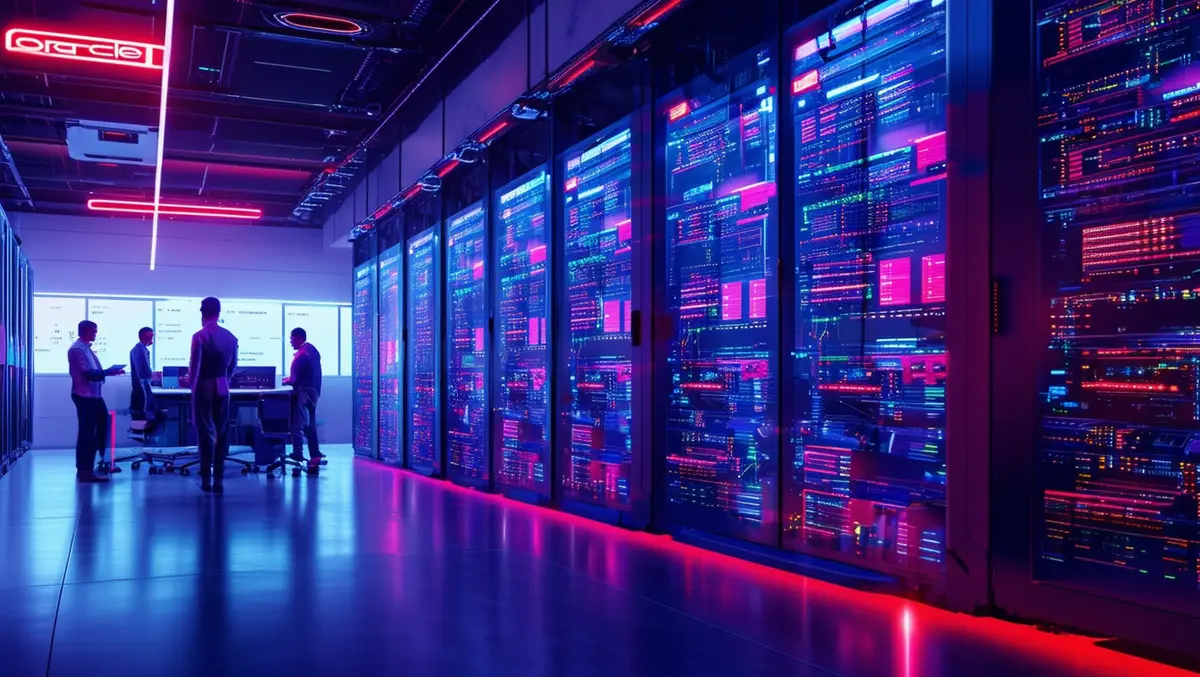
Oracle launches GenDev infrastructure to accelerate AI apps
Oracle has announced the launch of a generative development (GenDev) infrastructure aimed at enterprises. This new AI-centric application development framework is designed to streamline the process of generating sophisticated applications, providing developers with the tools needed to incorporate AI-powered natural language interfaces and human-centric data effortlessly.
The key technologies driving GenDev are part of Oracle Database 23ai, which includes JSON Relational Duality Views, AI Vector Search, and APEX. The primary goal is to simplify the generative AI application development process, focusing on ease of use, modular architecture, declarative languages, and automation in areas such as scalability, reliability, consistency, and security. The infrastructure manages data complexity at the data layer and enforces rules related to data intent, confidentiality, validation, and integrity via its converged data engine, Database 23ai. This engine supports various data types and workloads, ensuring transparent data consistency, performance, and availability, crucial for enterprise needs.
"Just as paved roads had to be built for us to get the full benefit of cars, we have to change the application development infrastructure to get the full benefit of AI app generation. GenDev enables developers to harness AI to swiftly generate modular, evolvable enterprise applications that are understandable and safe. Users can interact with data and applications using natural language and find data based on its semantic content," said Juan Loaiza, executive vice president, Mission-Critical Database Technologies at Oracle. "Oracle Database 23ai provides the AI-centric infrastructure needed to dramatically accelerate generative development for enterprise apps."
Oracle Database 23ai extends its capabilities to users of Oracle Autonomous Database, available via Oracle Cloud Infrastructure (OCI) and Oracle Database@Azure. Significant enhancements have been introduced to support GenDev initiatives. One feature is 'Oracle Autonomous Database Select AI with RAG' (retrieval-augmented generation), designed to reduce the risk of hallucinations by providing more precise responses to natural language queries through AI Vector Search, thereby facilitating the use of large language models (LLMs) with enterprise data.
The database's broadened support for LLMs now integrates with Google Gemini, Anthropic Claude, and Hugging Face, among others, enabling enterprises to choose from 35 different LLMs across seven providers for building generative AI applications. To boost the performance of AI data operations, the database also includes NVIDIA GPU support, allowing accelerated processes without the need for managing GPU servers independently. Customers can leverage GPU-enabled Python packages via Oracle Machine Learning Notebooks for intensive tasks such as generating vector embeddings using transformer models and constructing deep learning models.
Further enhancements to the Autonomous Database include updates to Data Studio AI, which allows customers to prepare and load data using natural language and create AI pipelines with a "drag and drop" visual tool for handling text and image vector embeddings. Additionally, the Graph Studio now offers no-code tools for building Operational Property Graph models, integrated within Oracle Database 23ai.
Oracle has also introduced new pricing and accessibility options for developers. The 'Autonomous Database for Developers' offers a suite of features and tools at a flat hourly rate of USD $0.039, or USD $28.54 per month, presenting a cost-effective entry point for development use cases with straightforward upgrades to production deployment. A 'Developer Container Image' variant provides the same features in a downloadable format for use on local machines, maintaining a fully-managed database experience suitable for local CI/CD pipelines.
Another notable feature is 'Autonomous Database Select AI—Synthetic Data Creation', which allows users to expedite the development and testing of database instances by cloning production databases and replacing the data with realistic AI-generated test data.


